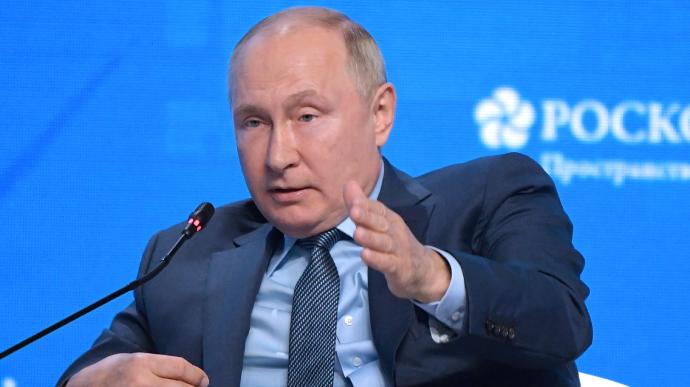
ROMAN PETRENKO – WEDNESDAY, 4 MAY 2022, 10:59 The Kremlin has sharply reduced the use of the term “de-Nazification”, a term mentioned by the aggressor country’s president Vladimir Putin along with “demilitarisation” as the reason for starting the war in Ukraine. Source: “Proekt” investigative journalists, quoting sources in the Kremlin Details: “Proekt” notes that in his speech on 24 February, Vladimir Putin referred to the goals of the so-called “special operation” as being the “demilitarisation” and “de-Nazification” of Ukraine. As the statement was prepared in secrecy, experts were not given time to examine these terms in detail. And Russian propagandists had to repeat the term “de-Nazification” endlessly. Almost immediately, it became clear that the term was an unfortunate one. About a week after the war began, the Kremlin asked its sociologists to conduct closed-circuit telephone interviews, including a question about Russians’ attitudes to the main propaganda messages. Four sources – a high-ranking media manager, a sociologist and two political strategists close to the Kremlin – claim that respondents were unable to explain what “de-Nazification” meant. In addition, people found it difficult even to pronounce the word, says one of the sources. The source complained to journalists that after this, they [the Kremlin -ed.] made a mess of things – “Every week they were looking for new words, but nothing good came out of their mouths. As a result, the authorities have decided to sharply reduce the use of the word “de-Nazification” on air, but it was impossible to abandon it altogether – ” you can’t just forget the president’s stated aim”. “Proekt” reported that this was evident in the broadcasts of the Kremlin’s chief propagandist, Dmitriy Kiselev. In the first broadcast after the start of the war, he spent no less than seven minutes explaining the meaning of “de-Nazification”. But since the April broadcasts he has either not used the term at all, or only once during the whole broadcast.




